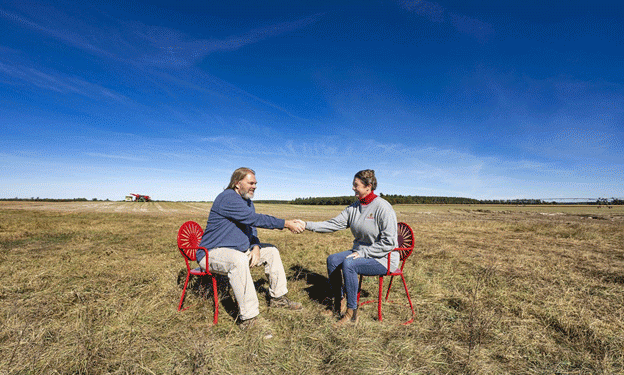Farming in the U.S. faces many challenges, especially when it comes to family farms. But in Wisconsin, scientists at the University of Wisconsin–Madison (UW–Madison) and local potato farmers have been working together for decades to develop sustainable growing practices and protect crops from disease.
A Long History of Partnership
One such farmer is Andy Dirks, a fourth-generation potato farmer from Coloma, a small community in central Wisconsin. His family collaborates with UW–Madison scientists on everything from supplying certified seed to developing disease-protective crops.
One of the leading experts helping farmers is Amanda Gevens, a potato disease specialist and chair of the UW–Madison Department of Plant Pathology. She joined the university in 2009, the year Wisconsin experienced its first blight outbreak in a decade. Since then, her job has been to quickly provide farmers with information that could save their crops and millions of dollars.
“The interventions we recommend could save the income of that crop,” says Gevens. “And over a large area, that’s millions of dollars.”
Science Against Potato Diseases
UW–Madison researchers take a holistic approach to potato disease management, working through the “disease triangle”:
- Environment – monitoring weather conditions and risk factors with the Blitecast system.
- Pathogen – diagnosing and testing for infection.
- Host (potato) – monitoring seed quality.
Since 1913, UW–Madison has administered the Wisconsin Potato Seed Certification Program, ensuring farmers receive quality planting material. Even in the winter, testing continues: Some of the seed potatoes are sent to Hawaii, where experts continue to monitor their health.
Farmers and Scientists: A Friendship Built on Results
The Dirks family’s Coloma Farms farm covers 2,700 acres and supplies potatoes to McCain Foods, the world’s largest producer of frozen potato products. Dirks says that working with UW–Madison scientists has significantly improved farming practices.
“They’re not afraid to challenge us, and we’re not afraid to ask questions,” Dirks says. “It’s a great collaboration. It’s one of the main reasons I stay in farming.”
The scientists are also working on innovative ways to combat disease:
- Using aerial photography and satellite imagery to detect blight and other diseases early.
- Using UV light to treat potatoes during long-term storage, which may become an alternative to chemical methods of protection.
Science and Farming – the Path to a Sustainable Future
The success of the partnership between the University and Wisconsin potato growers confirms that collaboration between science and agriculture is the key to a sustainable future for the industry.
“The research team is just amazing people,” says Dirks. “We know them personally, we can have a beer with them after a hard day. They are not afraid to get their hands and boots dirty in our fields. And that makes them the best potato researchers in the country, which we are very proud of.”
What do you think about such scientific partnerships in the agricultural industry? How important do you think is the collaboration between farmers and researchers? Share your opinion in the comments!







